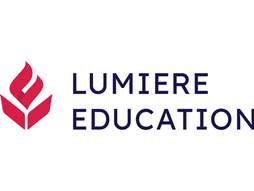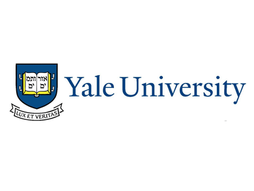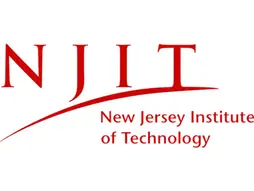The Ultimate Guide to Winning the Atlas Shrugged Essay Contest
Are you an ambitious high school student looking to win scholarships and showcase your literary analysis and writing abilities? Featuring generous prizes and the opportunity to explore Ayn Rand’s philosophies, the Atlas Shrugged Essay Contest is a famous writing competition for students to demonstrate strong writing abilities, independent and unique thinking, and a passion for ideas that can shape a society.
This blog is a complete and comprehensive guide to the competition, including information about its guidelines, prizes, dates, and important deadlines.
You can also look up some other great writing competitions that we’ve covered here!
What is the Atlas Shrugged Essay Contest?
The Atlas Shrugged Essay Contest is an annual essay-writing competition for high school seniors, college students, and graduate students, sponsored by the Ayn Rand Institute. The contest encourages students to analyze Ayn Rand’s novel Atlas Shrugged and write an essay discussing its philosophical ideas applied to today’s world based off of three prompts that are given for the year.
As for the scoring criteria, essays are judged based on the coherent development of a theme, logical reasoning, and clear writing.
Winners receive substantial cash prizes, with $10,000 for first place, $5,000 for second place, and $2,000 for third place. Winners also receive media coverage from the Ayn Rand Institute. The open-ended nature of topics and rigorous standards have established this as a prestigious contest for ambitious writers to gain experience, awards, and an impressive achievement to highlight in their college applications.
Is the Atlas Shrugged Essay Contest Prestigious?
The Atlas Shrugged Essay Contest is a prestigious competition. While the institute does not provide exact numbers on participation, it is estimated that there are 1000 - 2000 essays submitted every year, with only 80 people winning any amount of money. It offers generous prizes, opportunities for recognition, and the chance to have your work evaluated by a panel of distinguished judges including academics, writers, and intellectual leaders within the Ayn Rand Institute. Success in the contest exemplifies a student’s ability to craft a compelling argument, apply abstract philosophical concepts, demonstrate logical reasoning, and communicate complex ideas — all skills that translate well to higher education and your admissions officer will pick up on.
Winners are frequently accepted to top colleges and universities, where they utilize their awards to fund their education, such as 2022 winners attending Stanford, Cornell, and other internationally prestigious universities. Participating in the Atlas Shrugged Essay Contest motivates students to strengthen valuable skills in writing, argument building, and critical literary analysis and build confidence in themselves as independent thinkers and writers. Overall, the Atlas Shrugged Essay Contest offers students a meaningful way to challenge themselves intellectually and gain credentials to their academic and writing abilities to highlight in their college applications and beyond.
Who is Eligible to Apply to the Atlas Shrugged Essay Contest?
The Atlas Shrugged Essay Contest is open to high school seniors and college and graduate students. Thus, the competition can be very rigorous and intense for high schoolers, as there are no separate brackets of judging by age. The material of Atlas Shrugged can be controversial, thus it is important to remember that the essay is judged upon the writer’s ability to craft an argument and having a strong essay overall, rather than how the Institute and judges agree with the writer’s views. No one is limited from the contest based on their political/economic beliefs!
Timeline and Structure of the Atlas Shrugged Essay Contest
The Atlas Shrugged Essay Contest runs every year from mid-May to mid-November. Essays must be submitted by mid-November, with 2023’s deadline being November 6th, to be eligible for judging and scholarships. Winners are announced by April on a live stream, and awards are distributed shortly thereafter.
The first step is to actually read through the entire novel, taking notes and understanding its complex themes and plot lines. Anyone can actually email the Ayn Rand Institute for a free copy of the book. (essays@aynrand.org). The essay itself must be between 1800 to 1,600 words on a topic related to the novel’s themes. While Ayn Rand’s ideas covered in Atlas Shrugged inspire the contest topics, students are encouraged to take up new perspectives and interpretations of the novel, and find novel ways to connect the themes of the novel to reality. All submissions are evaluated based on coherence, logical reasoning supported by examples, and clear writing that persuades readers (the judges) of the essay’s main points. The prompts tend to be long-winded and complex, and often connect themes from the book to real-world events within the writer’s community or worldview, such as from this year:
“In his speech about money, Francisco says: “Whenever destroyers appear among men, they start by destroying money, for money is men’s protection and the base of a moral existence. . . . Paper [money] is a check drawn by legal looters upon an account which is not theirs: upon the virtue of the victims. Watch for the day when it bounces, marked: ‘Account overdrawn.’” Explain what Francisco means by this and how it serves the purpose of his speech. Then explain how his statement can be seen as applying to our economic world today.”
To enter, students complete online registration and submit their essays electronically on the Atlas Shrugged Essay Contest website. Essays are blinded before being evaluated by teams of judges at the Ayn Rand Institute, who assess entries based on content, style, and overall effectiveness. The top essays are in consideration of first, second, and third place. There is one first-place winner, given $10,000, three second-place winners given $2,500, five third-place winners given $500, 25 finalists given $100, and 50 finalists given $50. Cash prizes are paid directly to students to use at their discretion.
Tips for Writing a Winning Essay for the Atlas Shrugged Essay Contest
1. Choose and interpret the prompt in a way that sparks your interest
From the three prompts, spend some time reading through all of them, brainstorming potential arguments and essays you can write about then, and generate some ideas about how you can connect the book to a real-life scenario. After this time, analyze your results and see which of the prompts contains your best ideas and which you hold the most interest in. Fundamentally, you will not be able to write your best essay about a topic that you are not passionate about. Atlas Shrugged is a long novel, with a long essay to submit for the actual contest. To spend all of this time, the least you can do for yourself and for the best shot at winning is to find a prompt that deeply resonates with you and your community. Your enthusiasm will shine through.
2. Read, understand, and take notes on Atlas Shrugged
For a contest about the novel, you have to make sure you have a deep and close understanding of every single theme, major quote, and character arc and development. It cannot be understated how important having a great grasp on the novel can have on your chances for success, as a deeper understanding of the novel allows you to draw more interesting quotes and interpretations of literature, create a new argument that may not be understood through a surface-level read through, and just increases your chance of standing out and writing a novel essay for the judges, who sit through hundreds and thousands of essays a year. For the sake of organization as you write your essay, also be sure to keep an organized set of notes on the novel, connecting page numbers to the character to the quote to the argument you are trying to make, rather than flipping through the novel to find the one piece of evidence you desire.
3. Spend a great amount of time developing a clear thesis and logical flow
The most important aspect of any strong essay is to have a strong argument. A strong argument must be led by a strong thesis. Advance a compelling thesis supported by a logical chain of reasoning and examples from Atlas Shrugged and current events, by taking a strong and arguable stance. A good thesis will be contentious, will be controversial, and will have to be heavily defended, as that is the point of your argumentative essay. Your thesis should make the reader think a bit, be a bit confused before you argue your points, and by the end of your essay, be proven that your controversial thesis is fundamentally true and correct.
This is especially important for you if you are in high school, because you’ll be competing with much older students who have likely developed more nuanced skills to analyze complex ideas.
4. Consider counterarguments and address them
Similar to the point in your controversial thesis, any good argument will have some counterargument, as your thesis is not just a universally-agreed upon statement. Be sure to discuss and even emphasize contrarian perspectives to your thesis objectively, then reaffirm why your position remains correct based on additional insights and show that the counterargument is actually invalid, weaker than your actual point, or can actually be interpreted, with additional evidence, to even prove your argument. Exploring counterpoints adds depth and validity to your argument, as avoiding counterpoints can be a sign that you cannot address them and you have a weak essay.
5. Utilize a variety of grammatical, sentence, and literary structures
Remember that your readers will be reading through hundreds and thousands of essays. Even if you have a strong argument, if you use improper grammar and spelling (which is stated in the rules to take off points towards your essay), similar sentence and paragraph structures, blunt and boring language, etc., your essay will not perform as well as an essay with a strong argument, but also just interesting to read. How many books out there have an interesting premise and plot, but are just boring to read? Thus, be sure to use a variety of sentence and paragraph structures, varying the vocabulary, literary devices, transitions, and rhythms you employ.
6. Proofread and edit thoroughly and consistently
After putting in all of the effort to craft an argument, generate a thesis, write 1600 words, and conclude your essay, read through your essay for clarity, coherence, and just proper grammar and spelling. Utilize your teachers and friends to read through your essay and provide some points of feedback, especially with grammar structures and interest, as others will likely not have read Atlas Shrugged. Put your essay through a text-to-speech service to hear how your essay flows and audibly sounds, and mark every point where it sounds awkward, or an argument can be fleshed out more. Go through rounds of these edits until you sit down and are satisfied with your wonderfully crafted essay.
7. Always keep track of contest guidelines and rules
Lastly, after writing your entire essay and correcting it to be fundamentally perfect, make sure that your essay meets all length, formatting, and submission requirements to avoid disqualification, which includes double-spaced, 800-1600 words, and written in English. Submit the deadline by 11:59 pm digitally, and if you happen to run into any issues in submission, email the Ayn Rand Institute at essays@aynrand.org. Keep these guidelines in mind so that your argument does not go widely over the word limit or you are rushing to submit at 11:58.
8. Follow some examples and lessons from previous winners
While of course, you should write your own essay, generated from your own ideas and words, learning from the essays of previous winners and strong pieces of writing is a smart idea of what the Institute likes to read and award. For example, let’s check out this essay. The author, Mayles of Universidad Nacional de Colombia, expertly compares Atlas Shrugged to Rand’s essay “What is Capitalism.” While the essay is beautifully written, flows seamlessly, and continually adds more and more strong evidence to his thesis, the point that makes this essay great is this: ”However, unlike the typical defenders of capitalism, Rand may argue that rather than the loss of economic prosperity as the tragic ending, the true tragedy lies in the act of intervention itself.” Regardless of the argument, we can analyze this sentence. This sentence contains parts of a counterargument, deepening the argument by challenging preconceived popular notions, and is subversive and susceptible to argument. This style of complexity pushes the essay to be more impactful, more convincing, and ultimately, leads to it becoming a winning essay. Furthermore, check out videos like these, when the Institute announces this year’s winners for special quotes and analyses of what led to a winning essay.
If you’d like to supplement your competitive experience with independent research, consider applying to Horizon’s Research Seminars and Labs!
This is a selective virtual research program that lets you engage in advanced research and develop a research paper on a subject of your choosing. Horizon has worked with 1000+ high school students so far and offers 600+ research specializations for you to choose from.
You can find the application link here
If you are passionate about conducting research in literature or journalism, you could also consider applying to the Lumiere Research Scholar Program, a selective online high school program for students founded with researchers at Harvard and Oxford. Last year, we had over 4000 students apply for 500 spots in the program! You can find the application form here.
Aaron Zheng is a sophomore at Harvard University, studying Bioengineering. He is passionate about biotechnology, business development, and aiding students to get to college, regardless of background. In his spare time, he looks to read, journal, and explore the world.
Image sources: Logo of Ayn Rand Institute, Banner of the 2022 Atlas Shrugged Essay Contest













